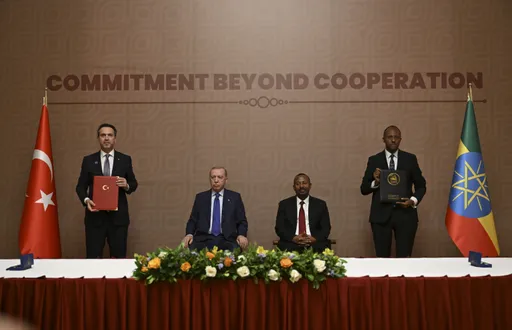Sweden's prime minister denounced an increasingly popular far-right party as racist and a threat to the nation's European values on Saturday as political candidates made their final pre-election pitches to voters.
The parliamentary election being held Sunday will be Sweden's first since the government in 2015 allowed 163,000 migrants into the country of 10 million. While far less than what Germany took in that year, it was the most per capita of any European nation.
TRT World's Simon McGregor-Wood reports.
An immigration backlash is expected to shape the vote even though the number of migrants arriving in Sweden has been restricted sharply since the height of Europe's mass influx. Polls showed established parties losing some support, including the centre-left parties which earlier favoured open-door policies.
The Sweden Democrats, a party rooted in a neo-Nazi movement that has worked to soften its image, has played a role in breaking down longstanding taboos on what Swedes could say openly about immigration and integration without being shunned as racists.
During a heated debate Friday evening of party leaders, Jimmie Akesson, the leader of the Sweden Democrats, caused a stir by blaming migrants for the difficulties they often have in finding employment. He said he heard it argued too many times that "if only migrants get a job, then everything will be all right."
"That's not going to happen, that's not how it is," Akesson said. "We have to ask ourselves a question: why is it so difficult for these people to get a job? That is because they're not Swedish. They can't adjust to Sweden, and it's hard for them to get a job."
The broadcaster that aired the televised debate, SVT, afterward called his remarks degrading and against the democratic mandate of public broadcasting. Akesson responded that state television should not take sides.
Opinion polls suggest Democrats swoll up to 20 percent
According to many recent opinion polls, support for the Sweden Democrats among registered voters has swollen to around 20 percent up from the 13 percent it won in 2014.
A 20 percent share of Sunday's vote would not be enough for the party to lead a government, but a strong show of support would give more power to pressure the next administration.
Some Swedes fear the party's more moderate image is superficial and have expressed anxieties about its anti-European Union views and support for lowering the legal limit for abortions from the current 18 weeks to 12.
Prime Minister Stefan Lofven stumped on Saturday for his party, the Social Democrats while portraying the Sweden Democrats as racist. Lofven accused some of his opponents of being prepared to work with the far-right party, which he vowed his party would not to.
"We are not going to retreat one millimetre in the face of hatred and extremism wherever it shows itself," Lofven said. "Again and again and again, they show their Nazi and racist roots and they are trying to destroy the EU at a time when we need that cooperation the most."
Ulf Kristersson, leader of the Moderate Party, stressed the importance of integrating newcomers.
"We can't have a situation when you come to Sweden and not integrate into society," he told voters. Integration is one of the biggest questions for the future in Sweden."
Carl Bildt, a former prime minister from the Moderate Party, said he thinks the extreme right's worrisome rise can be contained, but takes it as "a warning signal that we need to take these particular sentiments more seriously."
Swedish leaders should "address the concerns that are there, address the anti-European sentiments they are expressing as well, in order to be more resilient as a society against these sorts of trends in the future," Bildt said.























